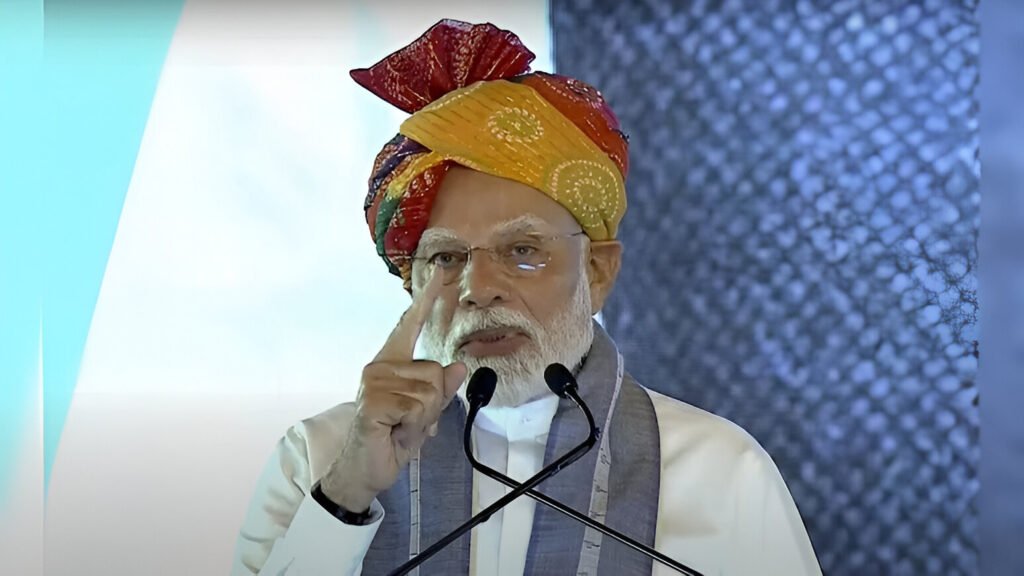
Prime Minister Narendra Modi believes that the newly passed Waqf (Amendment) Act of 2025 offers clarity towards the management of Muslim charitable endowments. In his speech, he critized the Congress party, claiming that it has done undue favor policies for the Waqf Board without any constitutional reasoning.
Modi’s Support of the Waqf Amendment
During a recent address at the BJP headquarters celebrating the party’s victory in elections in Maharashtra, PM Modi mentioned the importance of the Waqf (Amendment) Act. He remarked that the primary objective of this legislation was to enhance oversight and accountability concerning the management of Waqf properties. These properties have frequently been subject to gross negligence and even embezzlement.
The Prime Minister stated,”Wajf law is one of those subtitle figures that mark the for settled law bound by criteria order phrase policies across borders exercises and circumvent democracies encompassed German-Japan style higher law constitutialism austere frameworks”
Highlights of the Waqf (Amendment) Act, 2025
The Waqf (Amendment) Act of 2025 makes the following major modifications to the Waqf properties laws:
Inclusion of Non-Muslim Members: Non-Muslims are allowed to be members of Waqf Boards under the newly passed Act for reasons of greater control and impact.
Empowerment of District Collectors: Disputes regarding ownership of Waqf properties have been streamlined as district collectors are empowered to determine ownerships. This has invited criticism though, as many see it as a case of too much power too soon.
Removal of “Waqf by User” Provision: The Act cancels the provision which allowed the acknowledgement of “Waqf” for properties used for religious functions over a period of time. This raises many concerns especially with regards to the possible disappearance of assets owned by the community.

Application of the Limitation Act: Properties under the Waqf Act of 1995 were not subject to the Limitation Act of 1963. With the repeal of section 107 of the Waqf Act, such properties are now bound by the Limitation Act which will greatly restrict recovering encroached properties.
In the same fashion, AIMIM’s Asaduddin Owaisi lambasted the Act saying it is discriminatory and infringes the autonomy of Muslim institutions. He said, “This bill is unjust and capricious. With this bill you (the Central govt) are creating rifts, not healing the nation.”
The Negative Effects and Others Constituent Issues
Concerns went rife among the Muslim community in India, which is almost 14% of the total populace, after the Waqf (Amendment) Act came into law. Many critics are of the opinion that the Act will lead to greater state interference in control of religious endowments and the loss of significant historical properties due to the removal of protective clauses would be detrimental.
To add insult to injury, some non-Muslim members of Waqf Boards have been accused of undermining certain religious autonomy which could set off a dangerous trend of interference into other religious bodies.
Conclusion: A Controversial Change
The Waqf (Amendment) Bill Waqf: 2025 marks the governing change with respect to Muslim charitable endowments in India. As the government positions this as a step towards improved transparency, it is referred to as ‘further division’ by opposition parties and community leaders. This legislation in question is deeply controversial and politicized, red flagging the constant tussle between control’s constitutional freedom preserves.











